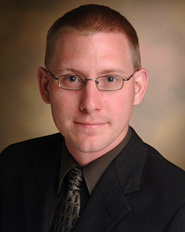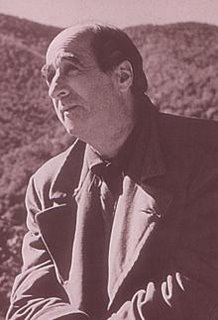
Alan Theisen (b. 4 October 1981; Port Huron, Michigan) is a Ph.D. graduate assistant in the Department of Music Theory at the Florida State University.
Composing since the age of sixteen, he has produced a steadily growing body of work distinguished by its musical energy and concentration of expression.
Representative works by Theisen include a Sonata for Alto Saxophone and Piano, Variations on a Theme of Gretchaninov, Eclogue for flute, and the Concerto for Alto Saxophone and String Orchestra (premiered by soloist Lawrence Gwozdz and the Szczecin Philharmonic in 2004). Recent compositions and commissions include Ritorno for flute and cello and a Triple Concerto. Noted composer Dimitri Terzakis commends Theisen's oeuvre as being "the product of a unique talent."
As a saxophonist, Theisen has toured the United States and Canada with the Sax-Chamber Orchestra, performing at two World Saxophone Congresses (Montreal - 2000, Minneapolis - 2003). He studied the instrument with internationally-recognized performer Lawrence Gwozdz and participated in masterclasses with famed saxophone pioneer Jean-Marie Londeix. No stranger to the podium, Theisen has been a guest conductor with several ensembles.
In an effort to showcase both his own original compositions and pieces by other contemporary composers, he founded the Intégrales New Music Festival in 2005. Now an annual event, Intégrales NMF features world-premiere performances by nationally recognized musicians. Intégrales has expanded to include musical collaborations with artists, authors, and dancers.
Theisen wrote his undergraduate thesis on György Ligeti's Piano Etudes, and has authored several papers on topics including Elliott Carter, film editing, composition as analysis, and Michael Brecker.
Other interests include mathematics, film criticism, and philosophy; in addition, Theisen has performed the role of Oberon in a production of Shakespeare's A Midsummer Night's Dream, for which he also wrote the incidental music.
Theisen lives with his wife (and puts up with their two cats) in Tallahassee, Florida.
|
|
|
|
|
|

Saturday, December 10, 2005
Who's Afraid of Stefan Wolpe?
 I'm engaged in a constant CD exchange program with one of my professors, Dr. Joseph Brumbeloe. We are two of the most notorious new music rabble-rousers here at USM and we amuse ourselves with swapping discs of contemporary music. The other day, I came into my office to find a grocery bag filled with approximately 30 CDs sitting on my desk. I'm engaged in a constant CD exchange program with one of my professors, Dr. Joseph Brumbeloe. We are two of the most notorious new music rabble-rousers here at USM and we amuse ourselves with swapping discs of contemporary music. The other day, I came into my office to find a grocery bag filled with approximately 30 CDs sitting on my desk.
Brumbeloe Claus had made a visit.
I quickly rifled through the collection, trying to determine which I would listen to first. Lutoslawski (been there, done that), Babbitt (eeg, no thank you...), Bartok (already have it), Schoenberg (maybe later), Cowell (not in the mood for it), and then....jackpot. A disc of works by Stefan Wolpe - including the Quartet for Oboe, Cello, Percussion & Piano, the Sonata for Violin and Piano, and the Trio for Flute, Cello, and Piano. Three works from three different decades by a composer of which I'd never heard a note.
After listening to the entire disc, I sit back and wonder: "Why in the hell have I not heard this guy's music before?!" The music is constantly engaging, artsy without being too "uptown", brainy without being stuffy, accessible without being pandering, nodding to the past but looking to the future. Why aren't his works programmed? Many musicians don't know he even exists. His Wikipedia article is slight.
Who's afraid of Stefan Wolpe?
"Comet-like radiance, conviction, fervent intensity, penetrating thought on many levels of seriousness and humor, combined with breathtaking adventurousness and originality, marked the inner and outer life of Stefan Wolpe, as they do his compositions." - Elliott Carter
posted by Alan Theisen
|
| |



